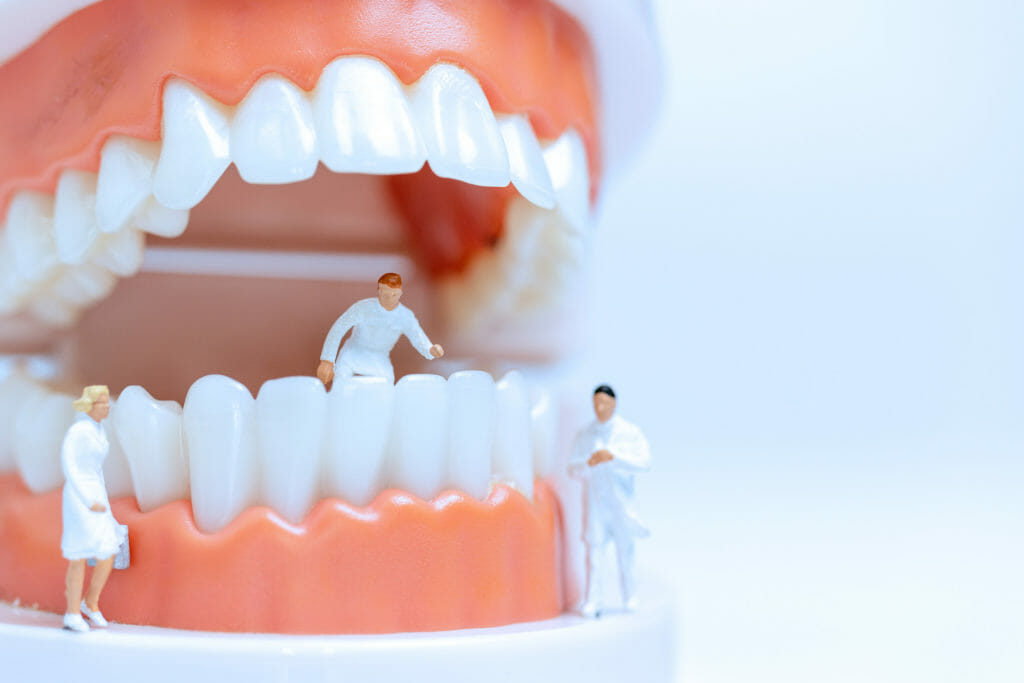Gum diseases are among the most common chronic human diseases, affecting 20 to 50 percent of the global population. They occur when plaque, a sticky film of bacteria, accumulates on teeth. Gum disease in its early stages is treatable and reversible (gingivitis). However, some people develop an irreversible chronic destructive form of gum disease. This disease leads to tooth loss. A growing body of evidence suggests that gum disease can increase the risk of developing other serious health problems.
Here are some of the most common health conditions associated with gum disease and how they are linked.
Alzheimer’s disease
Several large studies and meta-analyses have found a link between moderate to severe gum disease and dementia. One study found that having chronic gum disease for ten years or more was associated with a 70% higher risk of developing Alzheimer’s than not having it. Gum disease has also been linked to a sixfold decline in cognitive ability, according to research.
Initially, bacteria were thought to be directly responsible for this link. P. gingivalis, a bacteria common in chronic gum disease, was discovered in the brains of Alzheimer’s patients who died. Gingipains are toxic bacterial enzymes that are thought to worsen gum disease by preventing the immune response from turning off and thus prolonging inflammation.
However, it is unclear whether the link is explained by bacteria in the brain, a modified immune response, or other factors such as damage from systemic inflammation. However, taking care of your oral health may be one way to lower your risk of Alzheimer’s disease.
Cardiovascular disease
Gum disease is strongly linked to cardiovascular disease.
Gum disease was linked to a nearly 30% higher risk of first heart attack in a large study of over 1,600 people over the age of 60. This link remained even after researchers controlled for other conditions (such as diabetes and asthma) and lifestyle habits (such as smoking status, education, and marriage) known to increase a person’s risk of a heart attack.
More recently, studies have revealed that chronic gum disease-induced systemic inflammation causes the body’s stem cells to produce a hyper-responsive group of neutrophils (a type of early defense white blood cell). These cells may cause artery lining damage by damaging the cells that line the arteries, resulting in plaque buildup.
Type 2 diabetes
Gum disease is a well-known complication of type 2 diabetes, and it raises the risk of developing type 2 diabetes.
The processes that link the two diseases are being studied in depth, and it’s likely that inflammation caused by one affects the other. Type 2 diabetes, for example, increases the risk of gum disease by increasing inflammation in the gums. Gum disease has also been linked to impaired insulin signaling and insulin resistance, both of which can exacerbate type 2 diabetes.
Several clinical trials have shown that a thorough dental cleaning can improve blood sugar control in diabetic patients for several months, demonstrating yet another link between the two diseases.
Cancers
Gum disease has also been linked to an increased risk of developing a variety of cancers. Patients who reported a history of gum disease, for example, were found to have a 43 percent increased risk of esophageal cancer and a 52 percent increased risk of stomach cancer. Other studies have found that people with chronic gum disease have a 14-20% increased risk of developing any type of cancer. The same study found a 54% increased risk of pancreatic cancer.
It’s unclear why this connection exists. Some believe it is due to inflammation, which is present in both gum disease and cancer. Inflammation disrupts the environment required for cells to remain healthy and function properly, and it is a factor in the progression of both gum disease and tumor growth.
Improving gum health
In its early stages, gum disease is preventable and reversible.
While some risk factors for gum disease cannot be changed (for example, your genetics), you can alter your lifestyle to lower your overall risk. Eating less sugar, avoiding tobacco and alcohol, and reducing stress, for example, can all help. It’s also important to understand that certain medications (such as antidepressants and hypertension medications) can reduce saliva production, increasing your risk of gum disease. People who take these medications must take extra precautions, such as using special gels or sprays to increase saliva production or brushing their teeth with extra care.

